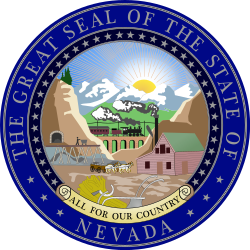| |||||||||||||||||||||||||||||||||||||
11 of the 21 seats in the Nevada State Senate 11 seats needed for a majority | |||||||||||||||||||||||||||||||||||||
|---|---|---|---|---|---|---|---|---|---|---|---|---|---|---|---|---|---|---|---|---|---|---|---|---|---|---|---|---|---|---|---|---|---|---|---|---|---|
| |||||||||||||||||||||||||||||||||||||
 Results: Democratic gain Democratic hold Republican hold No election | |||||||||||||||||||||||||||||||||||||
| |||||||||||||||||||||||||||||||||||||
| Elections in Nevada |
|---|
 |
The 2018 Nevada Senate election took place as part of the biennial United States elections. Nevada voters elected state senators in 11 of the state senate's 21 districts. State senators serve four-year terms in the Nevada State Senate.
Contents
- Background
- Results
- Summary of results by state senate district
- Close races
- Predictions
- Detailed results by state senate district
- District 2
- District 8
- District 9
- District 10
- District 12
- District 13
- District 14
- District 16
- District 17
- District 20
- District 21
- See also
- Notes
- References
A primary election on June 12, 2018, determined which candidates appeared on the November 6 general election ballot. Primary election results can be obtained from the State of Nevada's Secretary of State website. [2]
Due to resignations and appointments, on election day 2018, there were 10 Democrats, one independent (caucusing with Democrats), eight Republicans, and two vacancies in the Nevada Senate. To claim control of the chamber from Democrats, the Republicans needed to net three Senate seats.

